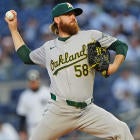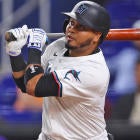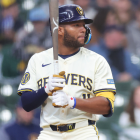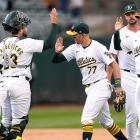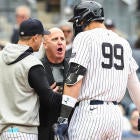On a team that has both this year's likely Cy Young winner (and deserving MVP candidate) and an actual superhero at the top of the rotation, it's pretty jarring to realize that the most fascinating element of the 2019 Mets will be ... their general manager.
In hiring CAA Sports co-head Brodie Van Wagenen, the Mets eschewed the typical backgrounds that usually lead to GM-dom, instead handing over their baseball operations department to a man who for years sat on the opposite end of the negotiating table. Van Wagenen has represented a panoply of big-name Mets players, including Jacob deGrom, Noah Syndergaard, Yoenis Cespedes, Todd Frazier, and Jason Vargas. In announcing the hire, Mets CEO Fred Wilpon described Van Wagenen as offering a "high character, blend of analytics, scouting and development ideas."
Left unsaid was how unusual it is to hire an agent as a team's general manager. Many of the game's best agents have been as adept (or more) in using numbers to evaluate player performance, albeit with a bias toward propping up their client's market value. But we're still talking about a very different set of experiences from the everyday duties of a GM, which include building rosters at the major and minor-league levels, overseeing drafts and managing huge spending budgets for owners who won't always give you what you want when you want it.
- 2018 Result: 77-85, fourth place in NL East
- Key free agents: A.J. Ramos, RP
- Needs: Catcher, first base, relief pitching
The good news is that the Mets' failures in the past two seasons have a lot more to do with management failing to spend money productively than they do with any lack of funds. The seven-liners carried Opening Day payrolls above $150 million in both 2017 and 2018. But a lot of that ended up being dead money. Cespedes still hopefully has a few good seasons left in him. It's just that 2018 wasn't one of those seasons, with injuries limiting him to just 38 games, a tough break considering the Mets paid him a jarring $29 million this year. And next year probably won't be either, with Cespedes expected to be out until the summer following multiple surgeries on his heel.
Even with some big chunks of money coming off the books, the Mets have strikingly little financial flexibility for a team coming off such a lousy season. According to the excellent Cot's contracts page, New York is already projected to carry about $144 million in payroll next season, with about $46 million of that total tied up in projected arbitration awards. Syndergaard and deGrom project to earn about $22 million combined through arbitration in 2019, with a gigantic additional raise in store the following year.
That math, bundled with the Mets' rotation-heavy talent base, needs at other positions, recent futility and baseball writers' collective boredom, combined to fuel a lot of unfounded trade rumors last season. Van Wagenen said he wants to keep deGrom in Queens for a long time, adding that he expects the Mets "to be in on every free agent" this winter. You can read into that latter statement as either pie-in-the-sky optimism from the new guy in charge, or a nebulous enough message to ostensibly mean nothing; the Mets could place a call to the agents of each of the top 100 free agents this offseason, not sign a single one, and still claim to have been "in on" everyone.
If we split the difference, we can assume that Van Wagenen thinks the Mets could bounce back and become contenders in 2019. That's not impossible, if they can catch a few breaks. deGrom going from great to best-player-in-the-league status bodes well for more dominance next season. So too does Zack Wheeler striking out a batter an inning and posting the best numbers of his career, and Steven Matz finally starting to live up to his potential with a tidy 3.38 first-half ERA and strong strikeout numbers of his own. Meanwhile with Cespedes out, six of the Mets' currently projected eight Opening Day starting position players are 27 or younger, a good sign given how much more likely younger players are to improve.
Youth alone guarantees nothing, though. Kevin Plawecki put up replacement-level numbers at catcher in the wake of Travis d'Arnaud's annual injury extravaganza, and first baseman Dominic Smith has yet to live up to the considerable prospect hype he carried with him in the minors. If the Mets want to spend some bucks and contend without blowing up their core, upgrading those two positions could instantly tack four or five more wins onto the team's ledger. The biggest wild card could be the team's bullpen. Mets relievers finished second-to-last in the majors in park-adjusted ERA. Bullpen performance being as random as it is, the Mets could easily fare a lot better just by bringing back their 2018 cast; a shrewd, low-cost pickup or two would further stoke such a rebound. And if you really want to drink some Kool-Aid, consider that no one thought much of them coming off six straight losing seasons heading into 2015 ... only for a shocker World Series berth to occur.
The biggest problem could actually turn out to be one of competition. The Braves and Phillies both cemented themselves as young teams on the rise last season, and the Nationals should have plenty of talent left even if Bryce Harper does in fact bolt for greener pastures. So the Mets could easily vault back above .500 with a few upgrades and better luck ... and end up finishing fourth again anyway.














